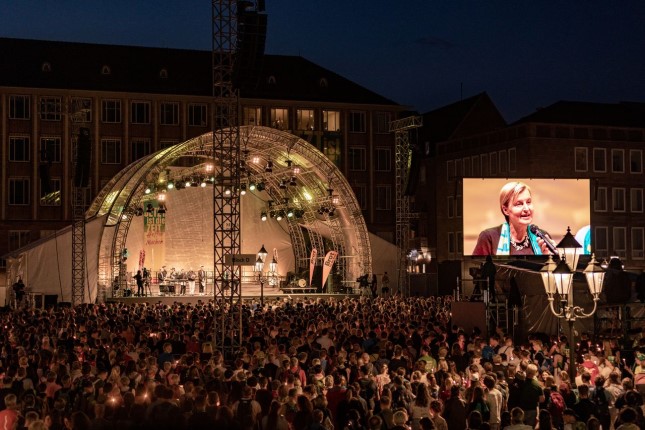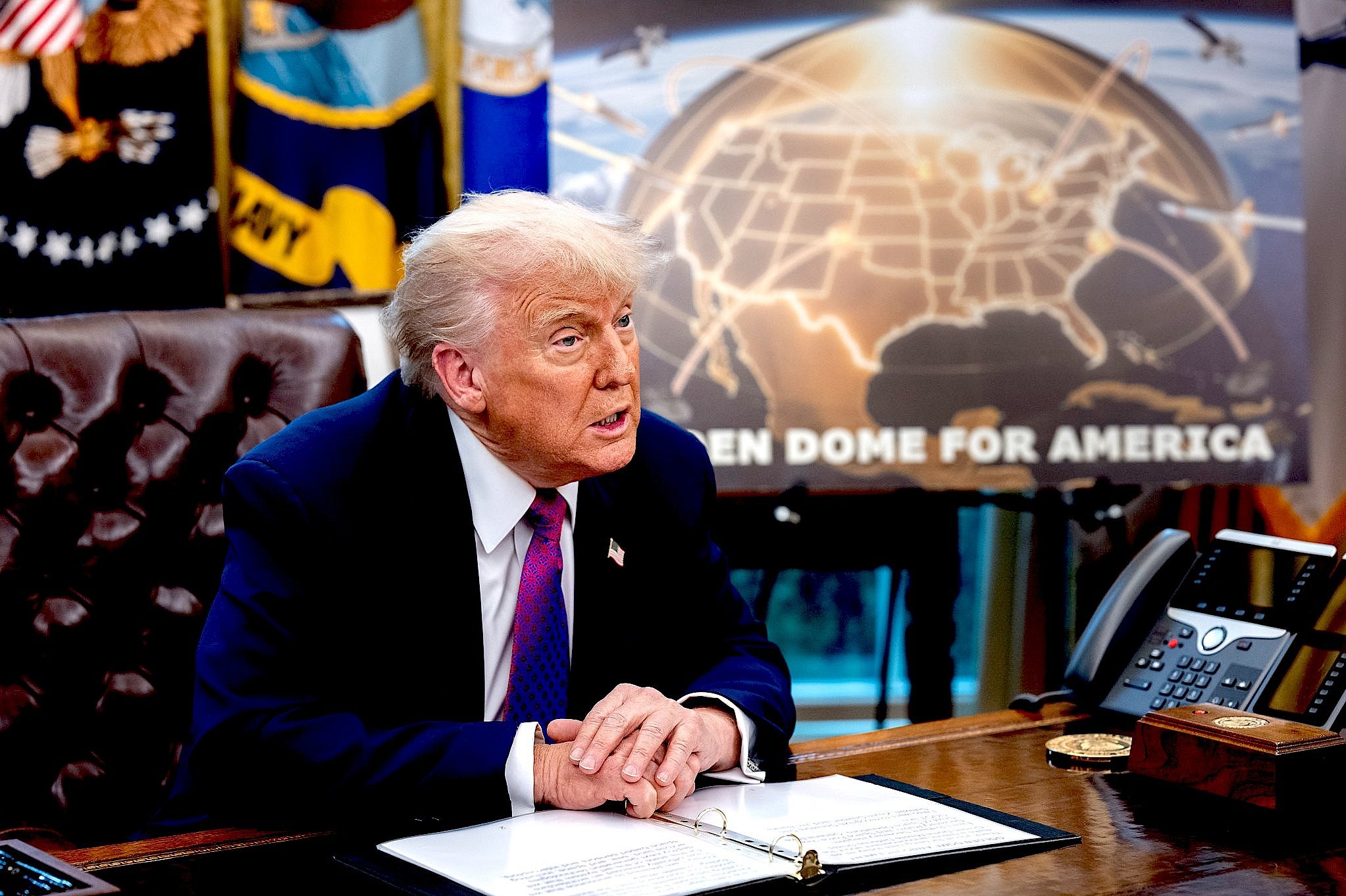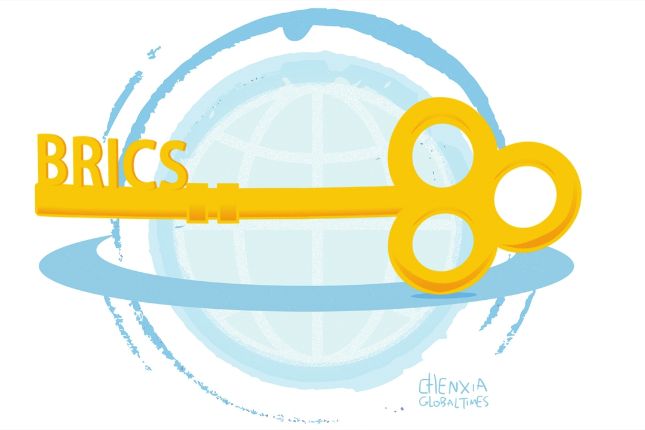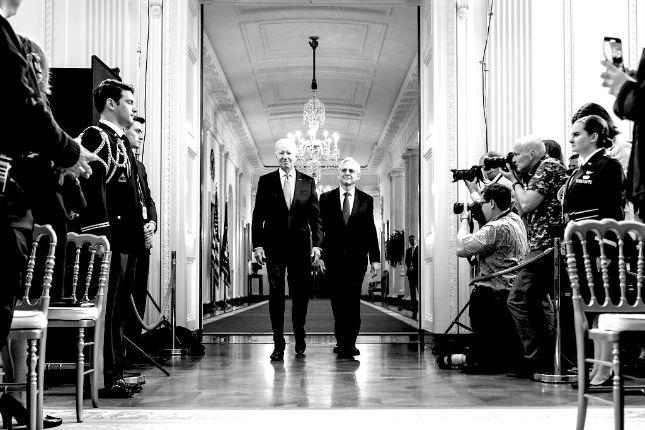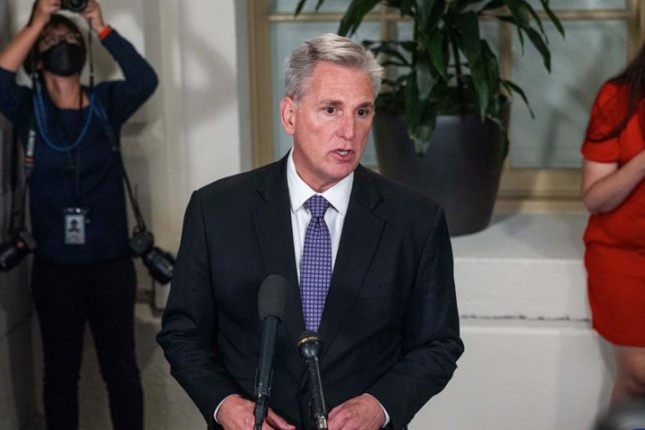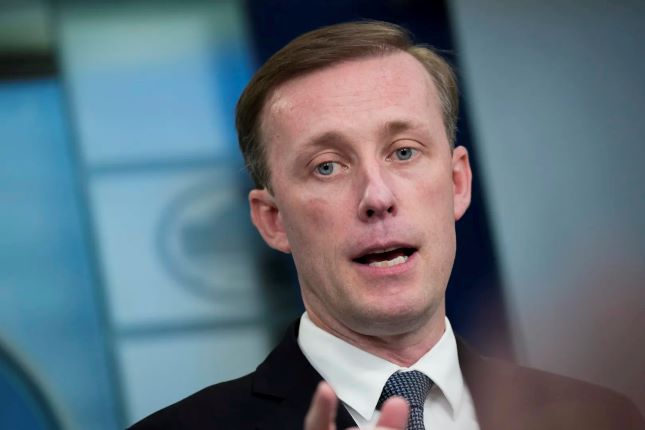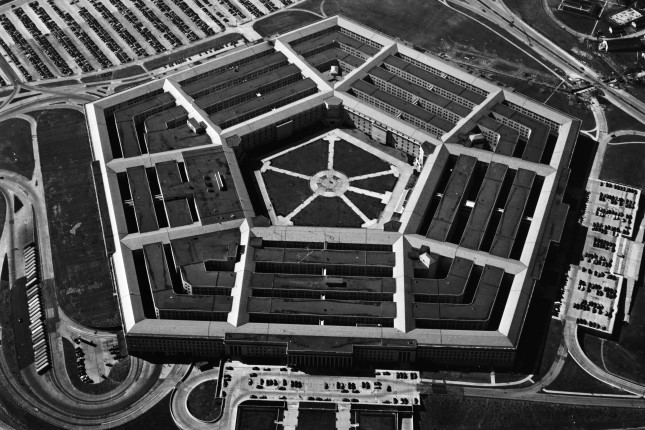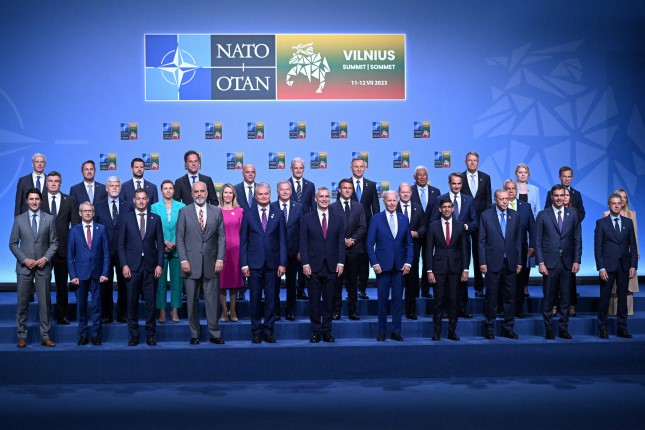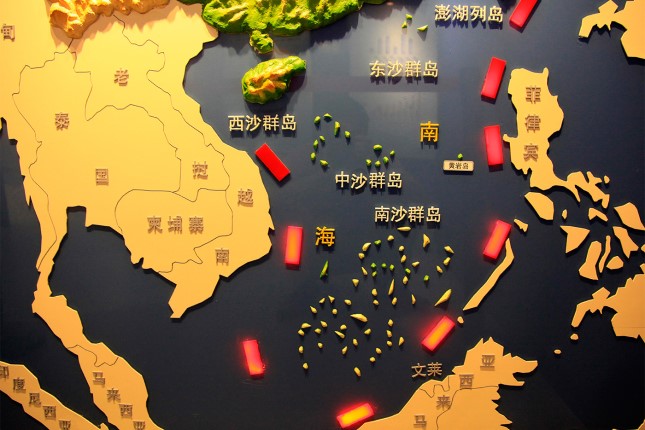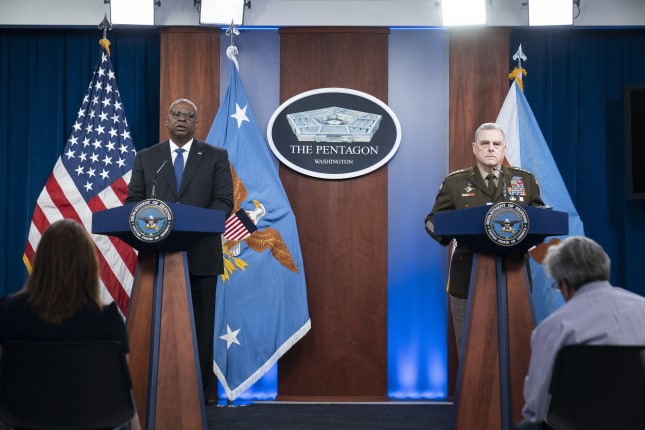The 38th German Evangelical Church Assembly (DEKT), which took place in Nuremberg from 7 to 11 June, was clearly defined by war propaganda. The biennial event was hosted by the Evangelical Church in Germany which boasts nearly 20 million adherents.
High-ranking representatives of the state, the government and the Bundeswehr (armed forces) were given a platform in Nuremberg to oppose prevailing anti-war sentiment and to convince the population to embrace the official course of war.
The organizers had already taken care of this in advance. The theologian Margot Kässmann, who was previously the figurehead of the Christian peace movement, cancelled her participation after her proposals were rejected. In her place, the Inspector General of the Bundeswehr, Carsten Breuer, was invited as a speaker. This was in itself a clear statement, which was underlined by the appearance of the “highest-ranking soldier” in a highly decorated uniform with the green-yellow Church Assembly scarf around his shoulders.
The conservative daily FAZ commented: “The alliance [of the Church congress] with the old peace movement is over.” The daily newspaper Taz declared along similar lines that pacifism had “broken the ground under its feet.”
A look at the sponsoring association of the assembly makes this clear. The association had an event budget of 20 million euros, which was mainly based on donations from Nuremberg, Bavaria and the federal government. The Christian Democrat politician Thomas de Maizière has been president of the congregation since October 2021. He was previously Federal Minister of Defense as well as twice Federal Minister of the Interior and known for his draconian deportation policy. His father Ulrich de Maizière built up the Bundeswehr after the Second World War following a career as an officer in the Reichswehr and Wehrmacht.
The number of official political representatives at the Nuremberg assembly was unusually high. In addition to Federal President Frank-Walter Steinmeier, Federal Chancellor Olaf Scholz (both Social Democrats, SPD) was also a prominent speaker. Other participants were: Minister of Economy Robert Habeck, Foreign Minister Annalena Baerbock, Family Minister Lisa Paus (all three Greens), Minister of Labour Hubertus Heil (SPD), the Vice-Presidents of the Bundestag Katrin Göring-Eckardt (Greens) and Petra Pau (Left Party), the CDU chairman Friedrich Merz as well as the Minister Presidents Michael Kretschmer (CDU), Winfried Kretschmann (Greens), Manuela Schwesig (SPD) and Markus Söder (Christian Social Union).
The slogan of the assembly was based on a Bible citation from the Gospel of Mark: “Now is the time.” Steinmeier took up the motto right at the beginning with the sentence: “It is also time for weapons.” At the opening of the meeting, the Federal President quoted the alleged Christian dilemma: Yes, creating peace without weapons, that is the claim. On the other hand, there is “solidarity with Ukraine.” Steinmeier continued: “Even I could not have imagined that I would say one day: In addition to all the other efforts: It is also time for weapons!”
The Bavarian Bishop Heinrich Bedford-Strohm described the Nuremberg assembly as a “fuelling station” to determine the future course not only of the Church, but society as a whole. In fact, however, the number of visitors with around 70,000 permanent participants this year was significantly below the average of previous Church assemblies. Including visitors to free events, there were a maximum of 130,000 participants. This is not surprising, as the number of members of the Protestant Church has been declining sharply for years. At the end of 2022, it amounted to about 19 million people (22.7 percent of the total population) in Germany.
Nevertheless, the anti-war sentiment, which prevails in the working class and in large parts of the population, broke out again and again at the Church conference. A demonstration on Saturday was accompanied by banners that read: “Win the peace, not the war,” “No arms deliveries to Ukraine,” “There is no just war,” or simply, “Swords to plowshares.” However, such initiatives were sidelined at the Church Assembly. The Church leaders and invited speakers engaged in war propaganda.
On the first day, Olaf Scholz received a special platform for his militaristic appeals, but his appearance, like that of Annalena Baerbock, was repeatedly interrupted by booing. A few days earlier, an outburst of anger from Scholz and his aggressive war speech against Russia evoked memories of the darkest periods in German history. David North, chairman of the international editorial board of the World Socialist Web Site, tweeted: “The last German chancellor to do this was Hitler. And like his predecessor, the enemy of Scholz is Russia.”
At the central panel discussion on “What peace do we want?” one participant asked, “How many more deaths are our ‘values’ worth?” The question was perfectly justified, because Ukraine’s “summer offensive” had just begun, which since then has claimed more than 1,000 deaths every day on the Ukrainian side alone. But the Church congress’ speakers did not respond to this horrendous bloodbath, let alone to the question of how it can be ended.
The Bundeswehr representative’s answer was particularly revealing: he had “sworn to defend law and freedom bravely,” Breuer said. “And bravery for us soldiers also means the commitment of our lives.” Thus, according to him, the dying should continue—and on the podium there was no one who opposed him.
The Evangelical Church conference came at a time of acute crisis of German imperialism. The NATO proxy war against Russia in Ukraine has led to domestic inflation driven in large part by the war economy and the working population is reacting with growing anger. A wave of class struggles is the result, which could rapidly connect with the struggles of workers across Europe. In this situation, the ruling class is looking for the support that the Church can offer it.
As far as the Evangelical Church is concerned, it has by no means only recently moved so strongly to the right. Rather, it can look back over a history of adaptation and support for dictatorial and militaristic regimes. Already in the imperial period, the Protestant Church moved enthusiastically with Kaiser Wilhelm II to enter the First World War. Later it actively supported the Third Reich.
In November 1938, Martin Sasse, the Protestant Bishop of Thuringia, welcomed the burning of synagogues. Referring to Martin Luther, whose birthday was 10 November, Sasse described Luther as “a warning voice for his people against the Jews.” And the supreme church council of the Evangelical-Lutheran state church of Mecklenburg praised the “good and clean cause of the freedom struggle of the German nation against the Jewish anti-Christian world Bolshevism.”
The connection of the Protestant Church with the peace movement—in the east and west of Germany—goes back mainly to the 1980s. At that time, with its pacifist course, the Church ensured that the opposition to war and rearmament did not link up with the resistance of the working class against the Stalinist SED regime in East Germany and the government of Helmut Kohl (CDU) and did not assume an anti-capitalist direction. Many politicians who played a leading role in the introduction of capitalism in the GDR—including Manfred Stolpe and Joachim Gauck—were senior church officials or pastors. Today, the Church is returning to its original role.
The escalation of the NATO war against Russia in Ukraine is a testament to the willingness of the ruling elites to go to extremes for their profit interests. To combat this, however, requires methods other than Christian pacifism. From a social point of view, pacifism is the policy of a section of the middle classes that is repelled by the evil outgrowths of imperialist aggression but at the same time rejects the revolutionary mobilization of the working class.
The struggle against war, however, requires the active intervention of the working class against its perpetrators. Otherwise, it cannot be won. It requires workers to join forces at the international level, independent of all the nationalist agencies of capital: the trade unions, the pseudo-left parties and the churches. The working class must oppose the logic of the war, which leads to a catastrophic nuclear war, with the logic of the class struggle.
“If imperialism is willing to shed blood in war and attack all the basic democratic rights won by the revolutionary struggles of the past, we have an obligation to resist,”—these words come from a statement jointly written by Ukrainian and Russian Trotskyists.
Photo: Evening event of the Evangelical Church Assembly in Nuremberg on June 10, 2023 © Photo by Kasa Fue / CC BY-SA 4.0.
Source: World Socialist Web Site.
